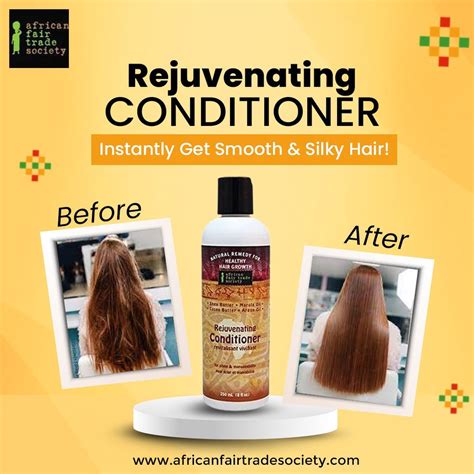Protein for Hair: The Ultimate Guide to Healthy, Strong Strands

Introduction
Your hair, a crowning glory, deserves the best nourishment to thrive. Proteins, the building blocks of hair strands, play a crucial role in maintaining its health, strength, and vitality. From preventing breakage to promoting growth, proteins are essential for achieving luscious, voluminous, and manageable hair.
Section 1: Understanding the Role of Protein in Hair
- Building Blocks of Keratin: Hair is primarily composed of keratin, a fibrous protein that provides structure, strength, and elasticity. Adequate protein intake is essential for the production of healthy keratin, ensuring strong and damage-resistant strands.
- Strengthening Hair: Proteins reinforce the hair shaft, reducing breakage and split ends. They create a protective layer around each strand, shielding it from external stressors like heat styling and chemical treatments.
- Promoting Growth: Proteins supply the amino acids necessary for hair follicle growth. By providing essential nutrients, proteins stimulate healthy cell division, leading to longer, thicker strands.
Section 2: Protein Deficiency: Signs and Symptoms
- Brittle and Breakable Hair: A lack of protein can manifest as weak, brittle hair that breaks easily. Devoid of sufficient building blocks, hair strands become susceptible to damage and breakage, compromising their length and overall health.
- Thinning and Lack of Volume: Protein deficiency can lead to hair thinning and a lack of volume. Without adequate nourishment, hair follicles struggle to produce healthy strands, resulting in a sparse and lifeless appearance.
- Slow Growth: Proteins are essential for stimulating hair growth. A deficiency can hinder cell division and slow down the growth cycle, leaving hair short and stunted.
Section 3: Rich Protein Sources for Hair Health
- Natural Foods: Incorporate protein-rich foods into your diet, such as lean meats, poultry, fish, beans, lentils, and nuts. These sources provide a wide range of amino acids essential for hair health.
- Protein Masks: Treat your hair to DIY protein masks using natural ingredients like egg yolk, avocado, or yogurt. These masks replenish proteins and repair damage, leaving your locks soft and lustrous.
- Protein Shampoos and Conditioners: Use protein-infused hair care products designed to penetrate hair strands and provide deep conditioning. These products help strengthen and protect hair, reducing breakage and promoting growth.
Section 4: Expert Tips for Maintaining Protein-Rich Hair
- Protein-Rich Diet: Maintain a balanced diet that includes a variety of protein sources. Aim for 0.8-1.2 grams of protein per kilogram of body weight daily.
- Regular Protein Treatments: Incorporate protein-rich masks or deep conditioning treatments into your hair care routine once or twice a week. This provides an extra boost of nourishment and strengthens hair strands.
- Protect from Damage: Limit heat styling and chemical treatments that can deplete hair’s protein content. Use heat protectants and avoid over-brushing or combing to prevent breakage.
Section 5: Introducing “Protifuse”: The Haircare Revolution
Introducing “Protifuse,” our revolutionary line of hair care products infused with an exclusive protein blend designed to transform your locks:
- Protifuse Shampoo with Pro-Keratin Complex: Gently cleanses while infusing hair with keratin proteins, strengthening and protecting each strand.
- Protifuse Conditioner with Phyto-Proteins: Provides deep conditioning with plant-based proteins, restoring moisture, elasticity, and shine.
- Protifuse Protein Mask with Bio-Amino Acids: A weekly treatment that replenishes protein levels, repairing damage, preventing breakage, and promoting healthy growth.
Section 6: Customer Testimonials
“Since using Protifuse, my hair is noticeably stronger and more resilient. It breaks less and has gained so much volume.” – Sarah, satisfied customer
“I love the Protifuse Protein Mask! It leaves my hair feeling soft, shiny, and full of life. It’s the best hair treatment I’ve ever used.” – Jessica, loyal user
Conclusion
Protein is the key to unlocking healthy, strong, and voluminous hair. By understanding the role of protein, choosing protein-rich sources, and incorporating protein-infused hair care products into your routine, you can transform your locks into the envy of all. Embrace the power of protein and watch your hair thrive.
Table 1: Protein Sources for Hair Health
| Source | Amount of Protein per 100g |
|---|---|
| Lean Beef | 26.2g |
| Chicken Breast | 30.6g |
| Salmon | 23.3g |
| Lentils | 26.3g |
| Black Beans | 24.4g |
| Almonds | 21.1g |
Table 2: Symptoms of Protein Deficiency in Hair
| Symptoms | Cause |
|---|---|
| Brittle and Breakable Hair | Weak hair shafts |
| Thinning and Lack of Volume | Reduced hair production |
| Slow Growth | Insufficient nutrients |
Table 3: Benefits of Protein for Hair
| Benefit | How it Works |
|---|---|
| Strengthens Hair | Reinforces hair shafts, reducing breakage |
| Promotes Growth | Supplies nutrients for hair follicle division |
| Enhances Elasticity | Provides flexibility to hair strands |
Table 4: Recommended Protein Intake for Hair Health
| Age Group | Daily Protein Intake (grams) |
|---|---|
| Adult Men | 56-91 |
| Adult Women | 46-75 |
| Teenagers (14-18 Years) | 65-80 |
| Children (4-8 Years) | 19-24 |
FAQs
- How much protein is enough for healthy hair?
-
Aim for 0.8-1.2 grams of protein per kilogram of body weight daily.
-
Can I get enough protein from food alone?
-
Yes, but protein-infused hair care products can provide an extra boost.
-
How often should I use protein masks or treatments?
-
Once or twice a week for optimal results.
-
What are some natural protein sources for hair?
-
Egg yolk, avocado, yogurt, and honey are excellent protein sources.
-
How can I protect my hair from protein overload?
- Use protein treatments in moderation and follow the recommended usage instructions.
